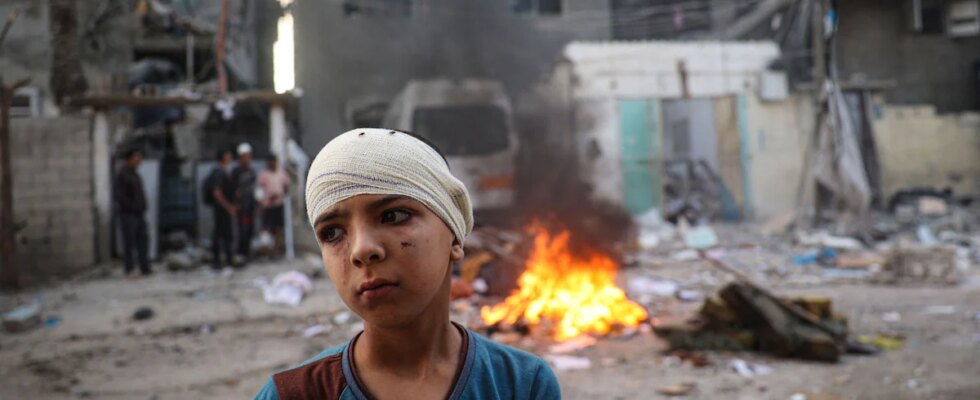Israel must immediately stop its offensive in the south of the Gaza Strip. This was decided by the International Court of Justice (ICJ) in The Hague on Friday. The highest UN judges followed an urgent application by South Africa, and the ruling is legally binding. The situation of the refugees in Rafah is steadily deteriorating and is “disastrous,” the judges said. The court is “not convinced that the evacuation efforts” for the civilian population in Gaza are sufficient to reduce “the immense risk” for the Palestinians due to the offensive in Rafah.
Israel had already announced days ago that it would not comply with the ruling. An Israeli government spokesman said on Thursday that “no power in the world will prevent Israel from protecting its citizens and taking action against Hamas in Gaza.”
The court can ask the UN Security Council for help
The UN court itself has no means of enforcing its rulings, but it can ask the UN Security Council for help. A resolution calling for sanctions against Israel could be put to a vote there – but this would probably fail due to a US veto.
Israel is being marginalized further internationally by the second ruling by an international court within a short period of time. On Monday, the chief prosecutor of the International Criminal Court (ICC), Karim Khan, requested an authority separate from the ICJ to issue arrest warrants against Israeli Prime Minister Benjamin Netanyahu and Defense Minister Joav Gallant. They are primarily accused of “starving” the population in Gaza. The judges also want to have three leaders of the terrorist organization Hamas arrested for war crimes.
South Africa’s original lawsuit against Israel dates back to December and accuses the country of committing genocide in the Gaza Strip. In an urgent motion, South Africa demanded, among other things, an immediate cessation of all hostilities. The judges did not follow this at the time, but they ordered the protection of the civilian population and called on Israel to allow more humanitarian aid into the country. In mid-February and late March, the court repeated similar demands.
Almost 40 percent of buildings in Rafah are damaged or destroyed
The judges have now ruled that Israel has failed to do enough to protect the civilian population. According to the United Nations, around one million Palestinians have fled Rafah in recent weeks and are now forced to endure catastrophic humanitarian conditions outdoors or in self-built shelters.
The two border crossings to the south of Rafah are closed, and no more aid deliveries are coming from there to the occupied territory. The United Nations Refugee Agency (UNRWA) has stopped distributing food in Rafah because it no longer has access to its warehouses, it says.
The attack on Rafah was announced by Prime Minister Netanyahu in February, when it was supposed to be the last battle in the fight against Hamas. Around 1.3 million people have sought shelter in the city on the border with Egypt since the war began; it was the last relatively intact city in the Gaza Strip. European countries and the USA had been warning Netanyahu for months about an attack, but for US President Joe Biden it was a red line that must not be crossed. Israel nevertheless began the offensive in early May, but called it “locally limited”.
Human rights organizations consider this to be just another way of describing the same goal: the destruction of the Gaza Strip. According to US scientists, between May 4 and 20, more than a thousand buildings in Rafah were damaged or destroyed, which corresponds to almost 40 percent of the buildings in Rafah.
The Israeli newspaper Haaretz writes: “Although the ground intrusion has been described as ‘limited,’ it is effectively a ground operation, showing a similar pattern of destruction to that seen in other Gaza towns during earlier phases of the war.”

